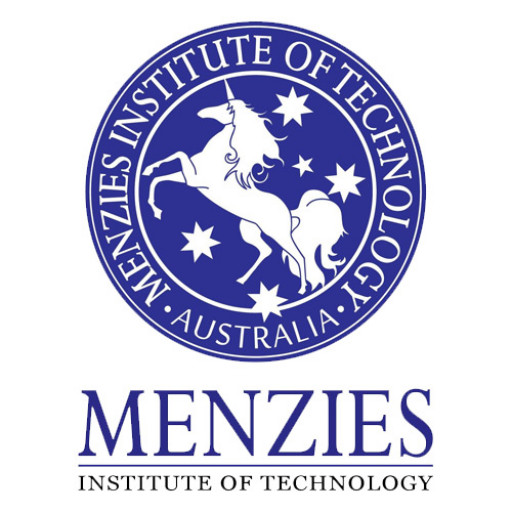Program Description: Automotive Mechanical Diagnosis
The Automotive Mechanical Diagnosis program at Everest Institute is designed to equip students with the essential skills and knowledge required to effectively diagnose and repair automotive mechanical systems. This comprehensive training prepares students for a successful career in the automotive repair industry by focusing on practical skills, technical understanding, and industry standards. Throughout the program, students will learn how to systematically identify issues in various vehicle components, interpret diagnostic codes, and apply appropriate repair techniques. The curriculum covers core areas such as engine performance, transmission systems, suspension and steering, braking systems, and electrical diagnostics, ensuring a well-rounded understanding of modern automotive technology. Students will gain hands-on experience working with diagnostic tools and equipment, familiarizing themselves with the latest industry innovations. Emphasis is placed on safety protocols, customer service, and effective communication skills to prepare students for real-world work environments. The program aims to develop analytical thinking, problem-solving skills, and technical proficiency, enabling graduates to confidently address complex mechanical issues. Graduates of the Automotive Mechanical Diagnosis program are prepared for entry-level positions as automotive technicians, diagnostic specialists, or service advisors. They will be equipped to pursue certifications such as ASE (Automotive Service Excellence) and continue their professional development in the automotive industry. The program’s flexible schedule and experienced instructors provide a supportive learning environment that fosters both theoretical understanding and practical application. Whether aspiring to work in independent repair shops or dealership service departments, students will leave the program ready to contribute effectively to the automotive service industry and advance their careers within this dynamic field.
The Automotive Mechanical Diagnosis program at Everest Institute is designed to equip students with comprehensive knowledge and practical skills required to accurately diagnose and service modern automotive systems. Throughout this program, students will explore the fundamentals of internal combustion engines, electrical systems, transmission components, and electronic control modules. The curriculum emphasizes hands-on training, allowing students to work directly on vehicles to identify faults, interpret diagnostic data, and implement effective repair strategies. Students will learn to utilize the latest diagnostic tools and software, ensuring they are well-prepared to meet the demands of the current automotive repair industry. Courses cover a wide range of topics including engine performance testing, emission control systems, brake systems, suspension setups, and computerized diagnostics. The program also includes instruction on safety procedures, shop management, and customer communication, preparing graduates for a professional career in automotive diagnostics. By the end of the course, students will have developed the technical expertise necessary to troubleshoot complex mechanical and electronic issues efficiently, enhancing their employability in automotive repair shops, dealerships, or independent service centers. The program aims to produce skilled technicians capable of adapting to rapid technological advancements in the automotive industry, ultimately supporting their professional growth and success.
Individuals undertaking the Certificate IV in Automotive Mechanical investigation must have done a automotive mechanical Certificate III qualifications, or be able to demonstrate equivalent competency.No certification, legislative or certification conditions apply to this eligibility at time of book.
Financing options for the Automotive Mechanical Diagnosis program at Everest Institute typically include a variety of financial aid opportunities designed to make education accessible to a diverse student body. Students may qualify for federal student aid programs such as Pell Grants, which do not require repayment and are awarded based on financial need. Additionally, there are federal student loans available, including Direct Subsidized and Unsubsidized Loans, which assist students in covering tuition costs, textbooks, and other expenses related to their studies. Everest Institute also offers institutional scholarships and grants to qualifying students, which are awarded based on merit, financial need, or specific criteria such as academic achievement or community involvement.
Furthermore, students can explore private financial aid options, including scholarships from automotive industry organizations, local community foundations, and corporate sponsorships targeted at technical training programs. Payment plans may be available through Everest Institute to help students manage their tuition payments over time without incurring interest or additional fees. Some students also consider external loan providers or lenders specialized in education financing, which can offer flexible repayment options suited to their financial situation.
The institute often provides financial counseling and assistance to help students navigate their options, complete necessary paperwork for aid applications, and select the best financing plan for their individual circumstances. It is recommended that prospective students begin the financial aid application process early, typically by completing the Free Application for Federal Student Aid (FAFSA) form, to ensure timely eligibility assessment and disbursement of funds.
Overall, the combination of federal programs, institutional support, scholarships, and external financing options aims to reduce the financial burden for students pursuing the Automotive Mechanical Diagnosis program, enabling them to focus on acquiring essential skills for their automotive careers. Students are encouraged to consult directly with the Everest Institute’s financial aid office for personalized assistance, current aid options, eligibility requirements, and application deadlines, ensuring they make informed financial decisions to support their educational goals.
Automotive Mechanical Diagnosis at Everest Institute is a comprehensive program designed to equip students with the essential skills and knowledge needed for diagnosing and repairing modern automotive systems. The curriculum emphasizes both theoretical understanding and practical application, preparing graduates to effectively identify issues within complex vehicle components and implement appropriate solutions. Students in this program learn about the fundamentals of automotive systems, including engines, transmission, brakes, steering, and electronic controls. The program includes hands-on training in diagnosing electrical and mechanical problems using specialized tools and diagnostic equipment, ensuring students gain real-world experience that aligns with industry standards.
Throughout the coursework, students explore topics such as engine performance analysis, fuel system diagnostics, emission control systems, paid diagnostics, and vehicle troubleshooting techniques. The program also emphasizes communication skills, enabling students to effectively interact with customers by explaining technical issues in understandable terms. Students often participate in simulated diagnostic scenarios and real-world internships, which provide valuable insights into automotive repair environments and build confidence in diagnostic procedures.
Everest Institute’s Automotive Mechanical Diagnosis program aims to prepare students for certification exams offered by industry recognized organizations, enhancing employment prospects in automotive repair shops, dealerships, and fleet maintenance facilities. Graduates of the program are equipped not only to pinpoint vehicle problems efficiently but also to recommend appropriate repairs or maintenance to ensure vehicle safety and compliance with environmental regulations.
The program is typically structured to include classroom instruction, lab work, and on-the-job training. It offers a pathway for students to gain technical competency in automotive diagnostics, making them valuable assets to employers seeking skilled technicians. Overall, the program’s focus on diagnostic accuracy, technical proficiency, and customer service skills provides a solid foundation for a successful career in automotive repair and maintenance.









